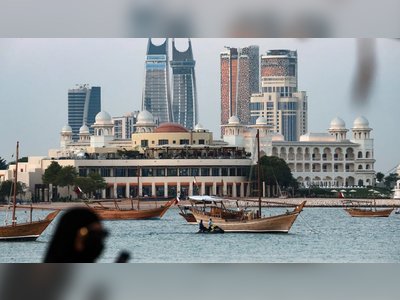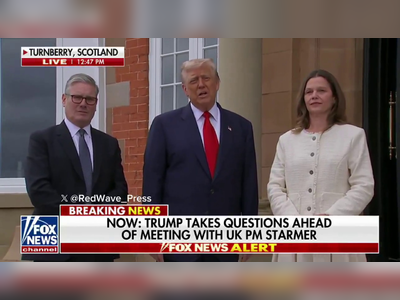Global COVID-19 Vaccination Efforts Continue Amidst New Variants
Countries ramp up vaccination campaigns while facing challenges from emerging variants.
As of October 2023, global efforts to vaccinate populations against COVID-19 persist, with various nations adopting distinct strategies to combat the pandemic.
Approximately 13 billion vaccine doses have been administered across the globe, with a significant focus on booster shots aimed at enhancing immunity levels.
The World Health Organization (WHO) has noted that over 80% of high-income countries have fully vaccinated more than 70% of their populations.
In contrast, low-income countries report significantly lower vaccination rates, with many having vaccinated only a fraction of their populations.
This discrepancy highlights ongoing challenges in vaccine distribution and accessibility.
In the United States, public health officials are advocating for increased booster vaccinations to counter the rise of new variants, particularly the Omicron variant, which continues to evolve.
Recent studies indicate that boosters can significantly improve protection against severe illness and hospitalization.
The Centers for Disease Control and Prevention (CDC) has recommended that eligible individuals receive the updated vaccines.
Meanwhile, in Europe, countries such as Germany and France are implementing booster campaigns as winter approaches, anticipating a potential surge in cases.
The European Medicines Agency (EMA) has expedited the approval process for modified vaccines aimed at addressing emerging variants, with several new formulations undergoing review.
In Asia, nations like Japan and India are also ramping up vaccination drives.
The Japanese government has partnered with pharmaceutical companies to ensure a steady supply of vaccines, while India continues to focus on vaccinating rural populations.
India has successfully administered over 2 billion doses, making it one of the largest vaccination campaigns globally.
Africa faces significant hurdles, with recent data indicating that only about 25% of the population has received at least one dose.
The African Union has launched initiatives to procure more vaccines and enhance distribution networks.
International partnerships, along with donations from wealthier nations, are playing a crucial role in increasing vaccine access on the continent.
New variants of the virus pose an ongoing threat, prompting health authorities worldwide to monitor developments closely.
While the current vaccines have shown effectiveness against severe cases of known variants, scientists warn that continuous mutations may affect the efficacy over time.
Research is ongoing to develop adaptive vaccines that can be rapidly updated to address the shifting landscape of the virus.
Public health messaging remains vital as misinformation continues to circulate, impacting vaccination rates.
Health officials emphasize the importance of accurate information to encourage vaccine uptake and adherence to public health guidelines.
Vaccination campaigns are increasingly complemented by public outreach efforts to engage communities and counteract false narratives surrounding the vaccines.
In conclusion, the global vaccination effort against COVID-19 continues amidst evolving challenges, with a clear delineation in vaccination rates between high and low-income countries as governments adapt their strategies to address new variants.
Approximately 13 billion vaccine doses have been administered across the globe, with a significant focus on booster shots aimed at enhancing immunity levels.
The World Health Organization (WHO) has noted that over 80% of high-income countries have fully vaccinated more than 70% of their populations.
In contrast, low-income countries report significantly lower vaccination rates, with many having vaccinated only a fraction of their populations.
This discrepancy highlights ongoing challenges in vaccine distribution and accessibility.
In the United States, public health officials are advocating for increased booster vaccinations to counter the rise of new variants, particularly the Omicron variant, which continues to evolve.
Recent studies indicate that boosters can significantly improve protection against severe illness and hospitalization.
The Centers for Disease Control and Prevention (CDC) has recommended that eligible individuals receive the updated vaccines.
Meanwhile, in Europe, countries such as Germany and France are implementing booster campaigns as winter approaches, anticipating a potential surge in cases.
The European Medicines Agency (EMA) has expedited the approval process for modified vaccines aimed at addressing emerging variants, with several new formulations undergoing review.
In Asia, nations like Japan and India are also ramping up vaccination drives.
The Japanese government has partnered with pharmaceutical companies to ensure a steady supply of vaccines, while India continues to focus on vaccinating rural populations.
India has successfully administered over 2 billion doses, making it one of the largest vaccination campaigns globally.
Africa faces significant hurdles, with recent data indicating that only about 25% of the population has received at least one dose.
The African Union has launched initiatives to procure more vaccines and enhance distribution networks.
International partnerships, along with donations from wealthier nations, are playing a crucial role in increasing vaccine access on the continent.
New variants of the virus pose an ongoing threat, prompting health authorities worldwide to monitor developments closely.
While the current vaccines have shown effectiveness against severe cases of known variants, scientists warn that continuous mutations may affect the efficacy over time.
Research is ongoing to develop adaptive vaccines that can be rapidly updated to address the shifting landscape of the virus.
Public health messaging remains vital as misinformation continues to circulate, impacting vaccination rates.
Health officials emphasize the importance of accurate information to encourage vaccine uptake and adherence to public health guidelines.
Vaccination campaigns are increasingly complemented by public outreach efforts to engage communities and counteract false narratives surrounding the vaccines.
In conclusion, the global vaccination effort against COVID-19 continues amidst evolving challenges, with a clear delineation in vaccination rates between high and low-income countries as governments adapt their strategies to address new variants.










